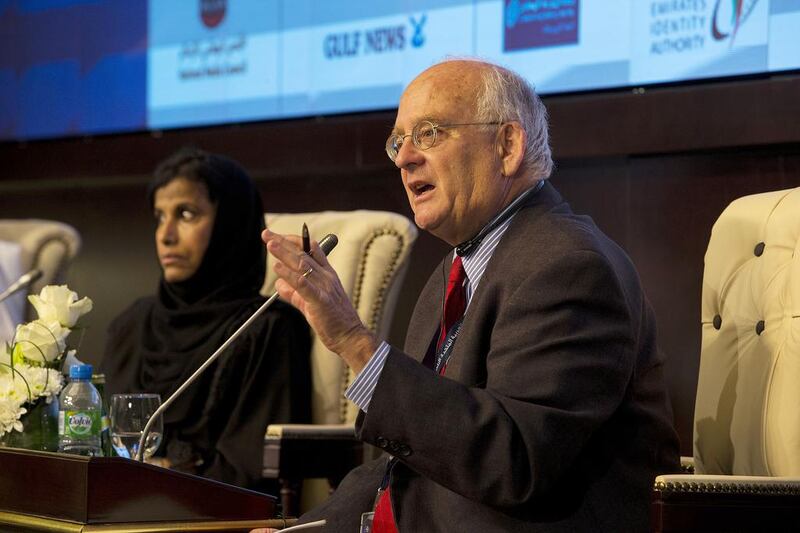ABU DHABI // International university branch campuses are a major economic driver and spur for developing a research culture, delegates to the Education Conference in the capital heard yesterday.
Dr Jason Lane, director of educational studies at the Nelson A Rockefeller Institute of Government, a think tank of the State University of New York, said fostering research and innovation was often a part of the strategy of branch campuses.
“A lot of branch campuses develop their own research eco-system,” he said. “Research which isn’t being done at the parent campus or evolving that being done at the parent campus and making it locally relevant. Bringing in scientists with their variety of expertise also helps build research infrastructure.”
Such activity helps “develop the next generation of local scientists, training PhDs that will work in the region and building the educational talent to support domestic institutions”, he said.
Economically, having campuses in the UAE with brand names such as New York University and the Sorbonne also acts as an economic driver.
“It attracts new students and staff who may not otherwise have been in the country,” Dr Lane said. “It also develops human capital as well as providing business assistance, which means resources for the community.”
The UAE has the highest concentration of branch campuses in the world with 40 across five emirates. Most are in Dubai, which has 27.
In the Gulf, the next-closest country is Qatar which hosts 11, including Carnegie-Mellon from the US. Bahrain has three, Yemen one and Saudi Arabia one.
Dr Lane said an international presence also had a diplomatic impact.
“Countries end up benefiting from a legitimacy in the host country which raises the value. Using an existing brand name can help raise the soft power a country has.”
A branch campus can also help develop a “cross cultural relationship and serve as a platform for government leaders”.
However, Prof Philip Altbach, director of the Centre for International Higher Education at Boston College in the US, said there was a risk of the “McDonaldisation” of higher education as campuses are franchised and education becomes commercialised.
“Increasingly, the motivation is commercial,” he said. “It’s big business.”
International students have become big business in the US as well, contributing about $20 billion (Dh73.5bn) a year to the economy. Figures are similar in the UK and Australia, which rely on international students who pay significantly higher fees as a source of revenue.
The downside to such student mobility is brain drain: 80 per cent of students who go to the US stay for 20 years, he said.
Dr Lane agreed that there were limitations.
“These are start-up organisations. While there are benefits to expanding they are still start-ups and it takes time to build up all institutions,” he said.
It can be costly to subsidise such institutions, with funds coming either from the parent campus or local government. In 2010, the Dubai campus of Michigan State University closed its undergraduate operation because the parent campus could no longer afford it.
Other challenging issues can be culture clashes and quality control, said Dr Lane.
In Dubai, the Knowledge and Human Development Authority, which regulates the free zones that house the 27 branch campuses, has a panel of academics from around the world who conduct quality inspections. If the branch institutions are not up to par, they are no longer able to take students and as such, some have had to leave the emirate.
Dr Warren Fox, head of higher education at KHDA, sees branch campuses as a major plus.
“Branch campuses are an expanding and important part of transnational education. They provide access to meet rising demand, they bring certified quality programmes, they offer international degrees recognised around the world, they often have faculty from the home campus, they have experience and expertise, and they expand cross cultural experiences.”
mswan@thenational.ae






